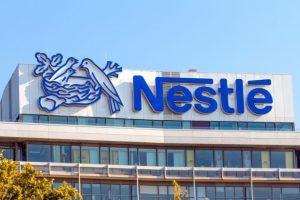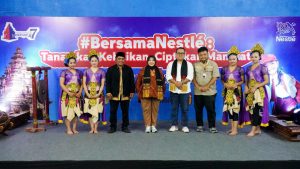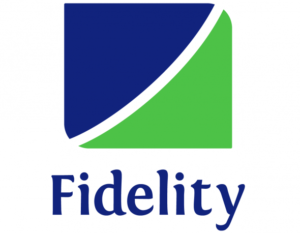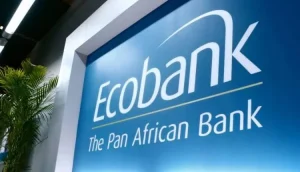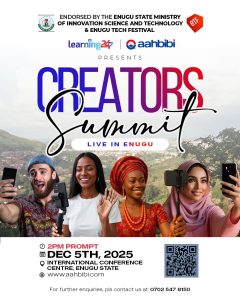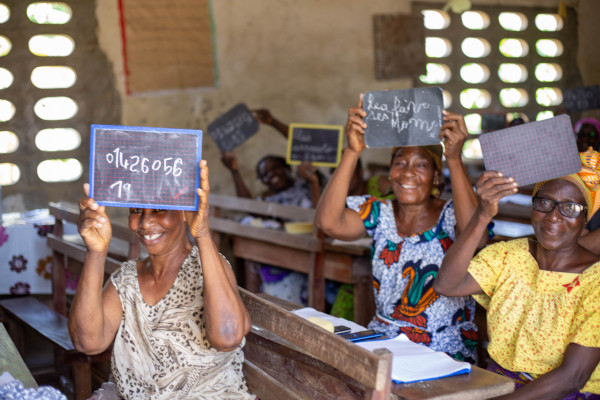
Yonkaho Guinssalou spent most of her life in the bustle of Koumassi Market, selling seasonings, managing goods, and raising a family—without ever learning to read or write. “I used to feel blind,” she says, not because of her eyesight, but because of the limits that illiteracy placed on her world. She couldn’t write her own name, read a price tag, or board a bus alone.
This year, Guinssalou, now in her 50s, completed her Certificat d’Études Primaires Élémentaires (CEPE)—Côte d’Ivoire’s primary school exam—through an unconventional program aimed at adult women market traders. She is one of five women between the ages of 19 and 60 to reach this milestone in 2025 through Mamies MAGGI, a literacy initiative run by Nestlé Côte d’Ivoire in collaboration with UNESCO and the Ivorian Ministry of Education.
In a country where female adult literacy hovers at just 40.26% (UNESCO Institute for Statistics, 2023), Guinssalou’s achievement is both a personal victory and a beacon of systemic possibility.
“Now I see,” she says. “I can take the bus on my own, write my name and phone number, read my clients’ shopping lists, and manage my purchases and sales with confidence.”
A Silent Crisis in Literacy
Despite decades of global attention, Côte d’Ivoire still struggles with literacy inequality. According to the UNESCO Institute for Statistics, as of 2023, only half of Ivorian adults can read and write, with a significant gender divide: while 60.2% of men are literate, just 40.26% of women are. For many, especially those in rural or low-income urban areas, education was a privilege out of reach—sacrificed for labor, marriage, or lack of access.
Guinssalou and thousands of others represent this silent crisis: intelligent, entrepreneurial women navigating complex market environments without basic literacy skills.
“I felt ashamed,” says Fatou, 38, another Mamies MAGGI participant who didn’t want her full name published. “I was making money, but I couldn’t even write down what I earned.”
Education at the Market Stall
Launched in 2017, the Mamies MAGGI program was designed to reach women like Guinssalou and Fatou where they already are—in the markets. The initiative grew out of Nestlé’s relationship with these women as vendors of its MAGGI products, a staple seasoning cube used in kitchens across West Africa.
But it was more than a brand initiative. The company partnered with UNESCO, known globally for its expertise in adult education, and the Ivorian Ministry of Education to develop a targeted curriculum. Rather than pulling women out of the markets, the program brings learning to them—both physically and digitally.
Classes are scheduled around trading hours. Smartphones provided by Nestlé come pre-loaded with a UNESCO-developed literacy app, allowing women to study in real-time during quiet periods at their stalls. Topics include reading, writing, numeracy, and practical business skills like inventory management and negotiation.
“These women are already businesspeople,” says Yann Wyss, Nestlé’s Global Head for Social Impact and Human Rights. “We’re not just teaching letters and numbers—we’re teaching tools for economic empowerment.”
2,500 Women and Counting
Since its inception, more than 2,500 women have participated in the Mamies MAGGI literacy program, according to Nestlé Côte d’Ivoire. In its current fourth phase, the initiative continues to expand into new markets and communities.
Boris Akanza, Category Manager for Culinary Products at Nestlé Côte d’Ivoire, has watched the program grow from a pilot into a cornerstone of the company’s social impact strategy.
“Some of these women have waited 40 years for a chance like this,” Akanza says. “They’re not just catching up—they’re showing us what adult education can be when done right.”
The program’s tailored approach aligns with best practices in adult literacy development. A 2018 UNESCO report on adult learning stressed that most adult literacy programs fail because they are “too generic and not rooted in learners’ lived realities.” Mamies MAGGI appears to be the opposite—deeply contextual, community-based, and business-relevant.
Breaking Generational Cycles
Beyond individual empowerment, the effects are intergenerational. Many women now help their children with homework, an activity once impossible due to their own lack of schooling.
Anecdotal evidence suggests improved school performance among children whose mothers are enrolled in Mamies MAGGI, though longitudinal data is still being collected. Researchers at Université Félix Houphouët-Boigny in Abidjan are currently studying the ripple effects of adult female literacy on family education outcomes.
“We’re seeing literacy as a form of social inheritance,” says Dr. Aminata Kourouma, a sociologist involved in the research. “When a mother learns, her whole family gains.”
A Model for Corporate Social Innovation
Mamies MAGGI also signals a shift in how corporations engage with development issues. Instead of traditional philanthropy, this program exemplifies “Creating Shared Value”—a concept Nestlé has championed, where corporate investments yield both social and business returns.
By empowering women within its own value chain, Nestlé not only improves livelihoods but also enhances its distribution network. Vendors who can read packaging, manage stock, and serve customers efficiently ultimately boost product sales.
But the human impact remains front and center.
“The biggest return,” says Akanza, “is watching these women walk taller, speak louder, and claim spaces that were once denied to them.”
No Age Limit on Learning
For many Mamies MAGGI, the idea of sitting for a national exam in adulthood once felt laughable. Today, it’s reality.
The five women who passed the CEPE this year—including a 60-year-old grandmother—prove that it’s never too late to start learning. Each of them studied between sales, during lunch breaks, and late at night, sometimes with children helping them review material.
They are rewriting not just their own futures, but society’s assumptions about adult learners.
“Why should education stop when childhood ends?” asks Guinssalou. “We are proving that education can begin at any time—if someone is willing to teach us.”
Scaling the Success
UNESCO is now evaluating the program as a replicable model for other African countries, where market-based female literacy programs could be implemented with similar structures. Governments and NGOs across the region have shown interest, and early talks are underway in Ghana and Burkina Faso.
“We see this as a blueprint,” says Fatouma Ba, an education specialist with UNESCO West Africa. “Not just for literacy, but for dignity, gender equity, and economic justice.”
Conclusion: Literacy as Liberation
For the Mamies MAGGI of Côte d’Ivoire, literacy has meant far more than mastering the alphabet. It has restored agency, unlocked confidence, and allowed them to fully participate in society—not just as sellers of goods, but as active citizens and role models.
Their journey is a powerful reminder that education is not just a right—it’s a tool for liberation. And that when institutions meet people where they are, extraordinary transformations are possible.
References & Sources:
- UNESCO Institute for Statistics (2023): Côte d’Ivoire Adult Literacy Rates
http://uis.unesco.org/ - Nestlé Côte d’Ivoire – Mamies MAGGI Program Overview
https://www.nestle.com/ (Press section) - UNESCO (2018): Global Report on Adult Learning and Education
https://unesdoc.unesco.org/ark:/48223/pf0000265956 - Ministère de l’Éducation Nationale et de l’Alphabétisation (MENET-FP), Côte d’Ivoire
https://www.education.gouv.ci/





